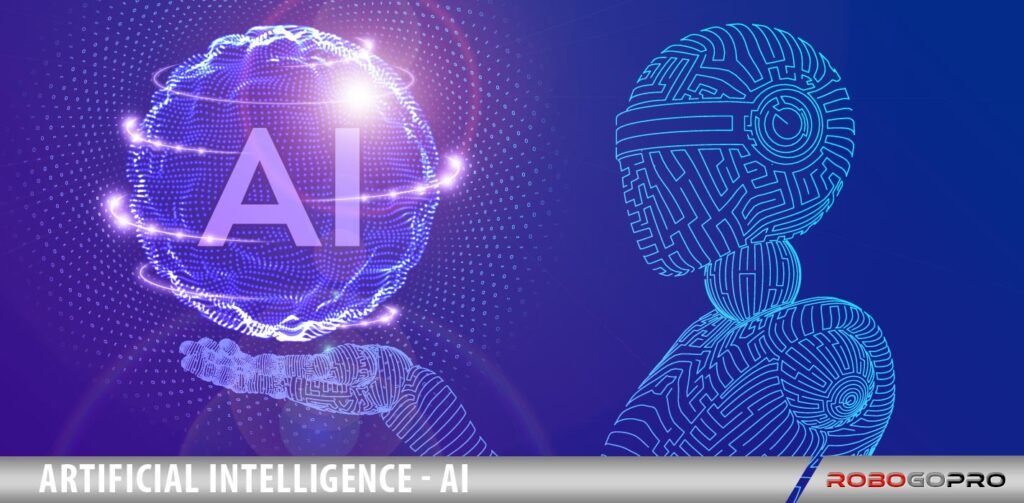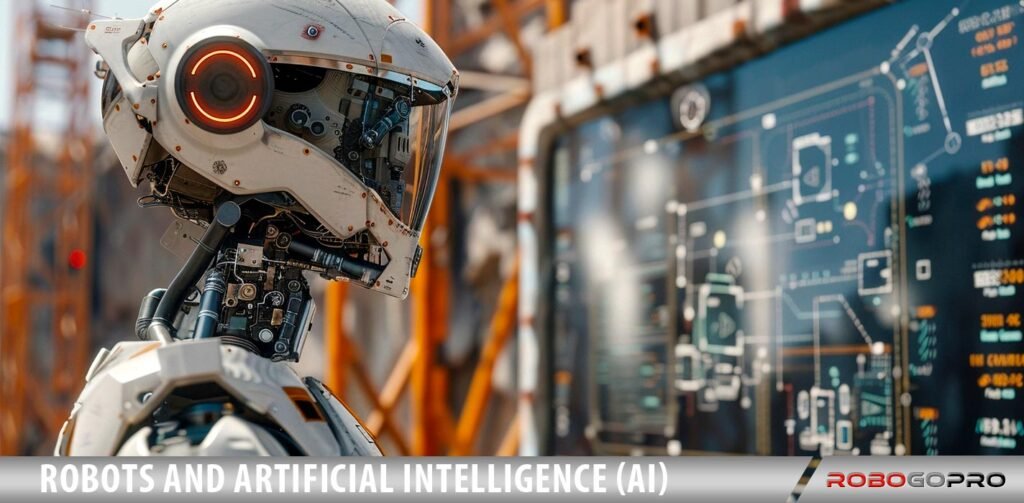-
The applications of AI span across multiple industries. AI can analyze medical records and data in healthcare to provide accurate diagnoses and treatment recommendations. It can also assist in the discovery of personalized applications.
-
Table of Contents
- Artificial Intelligence – AI
Artificial Intelligence – AI
Introduction
Artificial Intelligence (AI) is a rapidly evolving field that has the potential to revolutionize various industries and aspects of our daily lives. With technological advancements, AI refers to the development of computer systems that can perform tasks that would typically require human intelligence, such as speech recognition, decision-making, problem-solving, and learning.
One main reason AI has recently gained significant attention is its potential to enhance efficiency, accuracy, and productivity in various domains. AI-powered systems can analyze vast amounts of data and make predictions or decisions based on patterns and trends that may not be easily discernible to humans. This can improve decision-making processes, increase accuracy, and reduce human error.
The applications of AI span across multiple industries. AI can analyze medical records and data in healthcare to provide accurate diagnoses and treatment recommendations. It can also assist in drug discovery and personalized medicine. AI algorithms can analyze complex market trends and make investment recommendations in finance. AI can also be used in transportation to improve safety and efficiency through autonomous vehicles and traffic management systems. In manufacturing, AI-powered robots can automate repetitive tasks and increase production efficiency. These are just a few examples of how AI is transforming various industries.
The benefits of AI are vast. It can improve the quality and speed of decision-making, leading to increased productivity and cost savings. AI systems can work tirelessly and consistently, eliminating the limitations of human fatigue or bias. Moreover, AI has the potential to augment human capabilities, enabling professionals to focus on more complex and creative tasks while leaving mundane and repetitive tasks to AI-powered systems.
However, the adoption of AI also presents several challenges. One of the primary concerns is the ethical and societal impact of AI. As AI systems become more sophisticated, questions arise about privacy, data security, and the potential for job displacement. Additionally, AI algorithms are only as good as the data they are trained on, which raises concerns about bias and fairness in decision-making. Ensuring transparency and accountability in AI systems is crucial to address these challenges.
Looking towards the future, the prospects for AI are promising. AI technology is expected to advance rapidly, leading to more powerful and intelligent systems. This opens up new possibilities for innovation and disruption across industries. However, it is essential to strike a balance between embracing the potential of AI and addressing its ethical and societal implications. Collaborative efforts between policymakers, industry leaders, and researchers are necessary to shape the future of AI in a way that benefits society as a whole.
In conclusion, AI is transforming various industries and aspects of our daily lives. Its ability to perform tasks that typically require human intelligence has the potential to enhance efficiency, accuracy, and productivity. However, adopting AI also brings challenges to ethics, privacy, and fairness. The future of AI holds immense possibilities, but it is vital to ensure the responsible and ethical development and deployment of AI systems for the benefit of society.
The Evolution of AI
AI has a rich history dates back to the 1950s when the concept was first introduced. Over the years, AI has evolved significantly, driven by advancements in computing power, data availability, and algorithmic improvements.
AI can be broadly categorized into
- Narrow AI
- General AI
Narrow AI
Narrow AI, or weak AI, refers to AI systems designed to perform specific tasks. These systems are trained to excel in a particular domain, such as image recognition, natural language processing, or autonomous driving. Examples of narrow AI include virtual assistants like Siri and Alexa, online platform recommendation systems, and fraud detection algorithms for financial institutions.
General AI
General AI, also known as strong AI or artificial general intelligence (AGI), refers to AI systems that possess human-like intelligence and can perform any intellectual task that a human being can do. General AI remains a theoretical concept and has yet to be fully realized. It would require machines to possess cognitive abilities, consciousness, and self-awareness.
Applications of AI
AI has found applications in various industries and sectors, transforming how businesses operate and improving service quality. Some notable applications of AI include:
1. Healthcare
AI has the potential to revolutionize healthcare by improving diagnostics, treatment plans, and patient care. AI-powered healthcare systems can analyze medical images, such as X-rays and MRIs, to detect abnormalities and assist radiologists in making accurate diagnoses. AI algorithms can also analyze patient data to identify patterns and predict disease progression, enabling personalized treatment plans.
2. Finance
The finance industry has embraced AI to enhance fraud detection, risk assessment, and customer service. AI algorithms can analyze large volumes of financial data to identify suspicious transactions and patterns indicative of fraudulent activities. AI-powered chatbots and virtual assistants also provide customers personalized financial advice and support.
3. Transportation
AI is driving innovation in the transportation sector, particularly in the development of autonomous vehicles. Self-driving cars use AI algorithms to perceive their surroundings, make decisions, and navigate safely. AI-powered traffic management systems can optimize traffic flow, reduce congestion, and improve road safety.
4. Retail
Retailers leverage AI to enhance customer experiences, optimize inventory management, and personalize marketing campaigns. AI-powered chatbots and virtual assistants can provide personalized product recommendations and assist customers in making purchasing decisions. AI algorithms can also analyze customer data to identify trends and preferences, enabling targeted marketing strategies.
The Benefits of AI
AI offers numerous benefits across various domains, contributing to increased efficiency, accuracy, and productivity. Some key benefits of AI include:
1. Automation
AI automates repetitive and mundane tasks, freeing human resources to focus on more complex and creative endeavours. This leads to increased productivity and efficiency in various industries.
2. Improved Decision-Making
AI systems can analyze vast data and provide valuable insights to support decision-making processes. This enables businesses to make data-driven decisions, improving outcomes and reducing risks.
3. Enhanced Personalization
AI algorithms can analyze user data and preferences to provide personalized recommendations and experiences. This enhances customer satisfaction and loyalty, increasing sales and revenue for businesses.
4. Increased Accuracy
AI systems can perform tasks accurately, surpassing human capabilities in certain domains. For example, AI algorithms can analyze medical images more precisely, leading to more accurate diagnoses.
Challenges and Ethical Considerations
While AI offers numerous benefits, it also presents challenges and ethical considerations that must be addressed. Some key challenges include:
1. Data Privacy and Security
AI systems rely on vast amounts of data to learn and make predictions. Ensuring the privacy and security of this data is crucial to prevent unauthorized access and misuse.
2. Bias and Fairness
If trained on biased data, AI algorithms can be biased, leading to unfair outcomes. Addressing bias in AI systems is essential to ensuring fairness and preventing discrimination.
3. Job Displacement
Automating tasks through AI can lead to job displacement, particularly in industries that rely heavily on manual labour. It is crucial to reskill and upskill the workforce to adapt to the changing job landscape.
4. Lack of Transparency
AI algorithms can be complex and difficult to interpret, leading to a lack of transparency. This raises concerns about accountability and the ability to understand and explain the decisions made by AI systems.
The Future of AI
The future of AI holds immense potential for further advancements and applications. Some key areas that are expected to shape the future of AI include:
1. Deep Learning
Deep learning, a subset of AI, trains neural networks with multiple layers to learn and make predictions. Advancements in deep learning algorithms and hardware are expected to drive breakthroughs in various domains, such as healthcare, finance, and robotics.
2. Explainable AI
Explainable AI aims to develop AI systems that can provide transparent explanations for their decisions. This would address concerns regarding the lack of interpretability and enable better understanding and trust in AI systems.
3. AI and Robotics
Integrating AI and robotics will lead to significant advancements in automation and autonomous systems. This can potentially revolutionize industries such as manufacturing, logistics, and healthcare.
4. AI in Education
AI has the potential to transform education by personalizing learning experiences, providing intelligent tutoring, and automating administrative tasks. AI-powered educational platforms can adapt to individual student needs and provide targeted support.
Conclusion
The field of Artificial Intelligence (AI) holds immense promise and potential to revolutionize numerous industries and aspects of our daily lives. With advancements in machine learning, deep learning, and neural networks, AI can enhance efficiency, accuracy, and productivity across various sectors such as healthcare, finance, transportation, and more. From autonomous vehicles and personalized medicine to smart assistants and improved customer service, AI can transform how we work, live, and interact.
However, it is vital to ensure that AI is developed and deployed ethically, carefully considering its impact on society, privacy, and job displacement. As AI evolves rapidly, policymakers, researchers, and industry leaders must collaborate and establish guidelines that ensure this powerful technology’s responsible and beneficial use. With the right approach, AI has the potential to bring about transformative advancements, making our lives easier and more efficient and ultimately improving the overall human experience.


